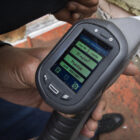Fines & Sanctions
Pediatrician Surrenders License Rather Than Face State Charges For Illegally Prescribing Opioids, Med Board Fines Doc
|
An East Hartford pediatrician who served a federal sentence for illegally prescribing oxycodone and failing to pay more than $177,000 in employee withholding taxes to the IRS has voluntarily surrendered his medical license. Since Dr. Sheikh Ahmed of Orange, who operated the East Hartford Medical Center, has turned in his license, the state Medical Examining Board on Tuesday agreed to drop its charges against him. If he tries to reinstate his license in the future, the charges will be deemed true, according to an affidavit from Ahmed. State Department of Public Health records accuse Ahmed of engaging in illegal and negligent conduct by prescribing oxycodone, an opioid painkiller, to people in exchange for money without examining them in 2017 and 2018. He also increased their dosage of the drug without justification, DPH records show.








